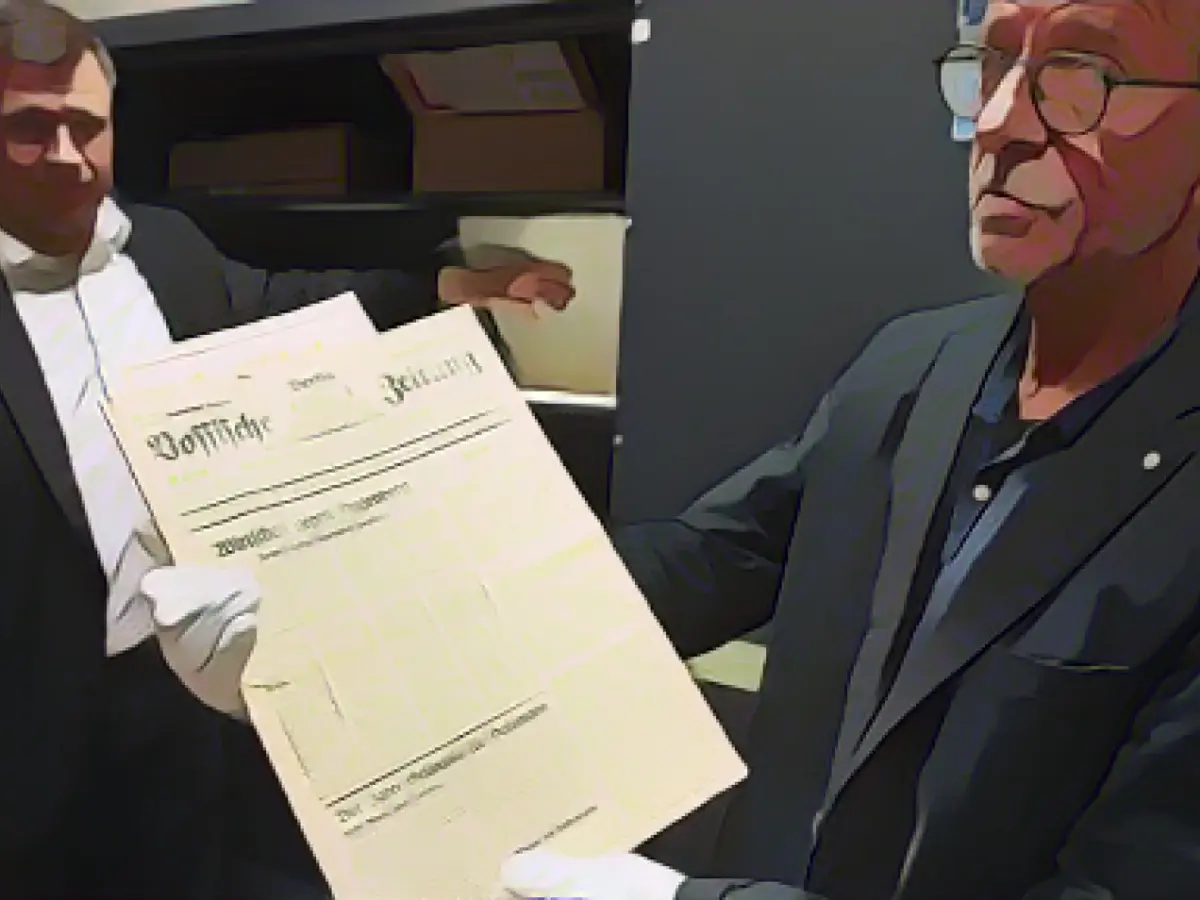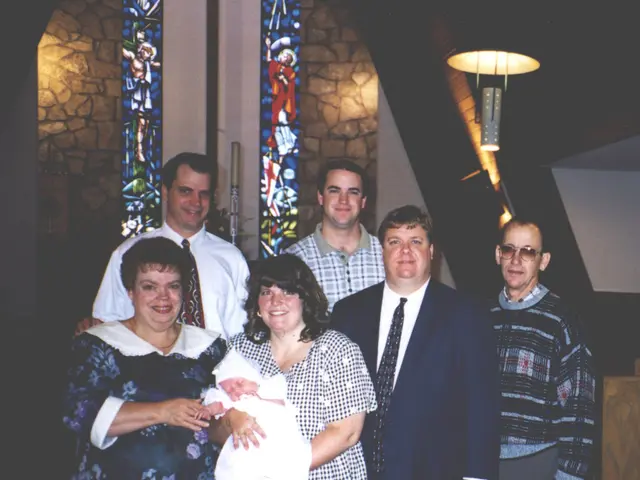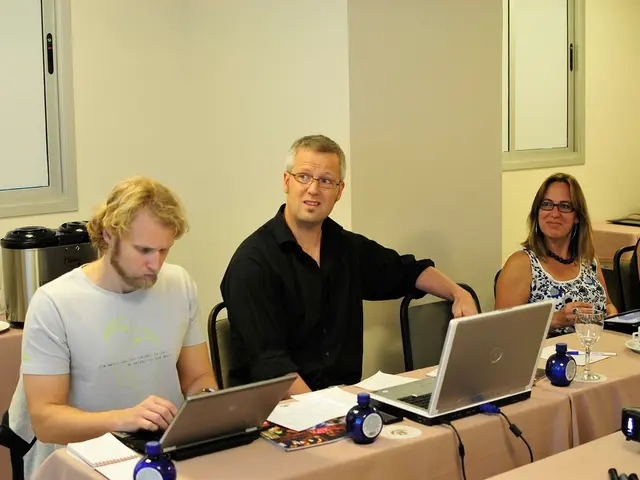Rheinsberg Seeks Negotiation Over Tucholsky Museum Sponsorship Transfer
The town of Rheinsberg is eager to discuss a potential handover of the Kurt Tucholsky Literature Museum sponsorship to the Ostprignitz-Ruppin district, as the current financial burden on the municipality becomes increasingly challenging. This revelation follows an inquiry to Deputy Mayor Norman Geist, who indicated the town's intention to present a motion supporting the move during the town council meeting (SVV) on December 18.
Previously, the SVV decided not to fill the Scientific Director position for the museum from March 2024, after the departure of Director Peter Böthig, in an attempt to preserve the budget. Instead, the position was slated for merger with the management of the tourist information office. The museum's significant cost burden, despite financial support from the state and the district totaling 80,000 euros annually, has led Rheinsberg to consider alternatives.
Positive responses from the district administration suggest the possibility of extending Böthig's contract until a suitable successor is found. This move could entice a more secure scientific direction for the museum. However, the museum's valuable collection—approximately half a million euros, according to Böthig—is the property of the city, posing a potential hurdle in the event of district takeover.
The district has extended an invitation to Rheinsberg to take over the museum's sponsorship, citing the institution's cultural significance as a major draw. As a recognized German cultural gem, the museum has hosted more than 470 notable literary readings and exhibitions since its establishment in 1991. With a collection of over 8,000 artifacts, the museum boasts an impressive representation of Tucholsky and other authors' works.
Museum Director Böthig advocated for the district takeover, highlighting its potential as a "salvation" for the museum, and his own willingness to extend his contract through the end of the year. Despite these prospects, the district's initiative still hinges on resolving the ownership issue of the museum's prized collection.
The German Cultural Council, concerned about the museum's future, placed it on the Red List of endangered cultural institutions following the Rheinsberg city council's decision. Furthermore, the Brandenburg Ministry of Culture is relieved at the prospect of the district retaining the museum in its current form. The ministry spokesperson, Stephan Breiding, emphasized the museum's cultural renown, referring to it as a regional and literary landmark.
Sources:
Enrichment Data:
The initiation of the district of Ostprignitz-Ruppin to pick up the Kurt Tucholsky Literature Museum's sponsorship from the town of Rheinsberg presents several potential opportunities and challenges:
- Financial Improvement:
- Balanced Budgeting: The district's involvement could offer a more balanced budget by pooling resources, potentially alleviating Rheinsberg's financial strain without compromising the museum's quality[1].
- Efficient Resource Allocation: By leveraging shared resources, the district could allocate funds more efficiently, preserving the museum's budget while ensuring its cultural offerings[1].
- Administrative Advancements:
- Simplified Management: Streamlined administration under district sponsorship could eliminate complications and improve overall management[1].
- Standardized Procedures: The district could impose standardized operational procedures, promoting consistency, and efficiency.
- Community Engagement:
- Wider Audiences: Greater district involvement could bring new and diverse audiences to the museum, helping elevate its prominence beyond the town of Rheinsberg[1].
- Support for Cultural Activities: The district could bolster cultural initiatives surrounding the museum, contributing to the overall cultural landscape.
- Collection Preservation and Development:
- Long-term Planning: Under the district's administration, there's potential for proactive long-term strategies surrounding the museum's development and preservation[1].
- Protection of Historical Artifacts: Prioritizing the preservation of the museum's collection and artifacts secures Tucholsky's literary legacy for future generations.
- Public Perceptions:
- Re-branding Opportunities: A potential rebranding through district sponsorship could impact public perceptions, necessitating review of marketing and promotional strategies[1].
- Enhanced Community Interest: District involvement could mobilize local support and interest, rekindling engagement with the museum.
- Operational Flexibility:
- Adaptability: The district's involvement might pave the way for flexible programming changes, allowing the museum to adapt to contemporary trends and preferences[1].
- Collaboration Opportunities: Collaborative partnerships with other cultural institutions may arise, strengthening the museum's presence within the regional cultural landscape.
- Governance and Accountability:
- Transparent Decision-making: District sponsorship may potentially invite more transparent financial structures and policies, fostering public trust and accountability[1].
- Implementation of Accountability Mechanisms: District governance could encompass accountability measures, ensuring the museum's ongoing relevance and success.
Despite these potential benefits, it is essential to consider some possible drawbacks:
- Loss of Identity:
- Town of Rheinsberg's Cultural Affiliation: Transitioning the museum's sponsorship could result in a diminished sense of local ownership and connection[1].
- Cultural Preservation:
- Sensitivity to Cultural and Historical Contexts: District administration must be mindful of the museum's historical and cultural significance while making changes and decisions[1].
- Public Reactions:
- Adjustment Period: The public could require a period of adjustment and re-engagement with the museum in the aftermath of the sponsorship change[1].
- Resource Allocation Trade-offs:
- Potential Redistribution of Budget: The district's focus on the museum might necessitate redirecting resources from other cultural projects or institutions, causing potential backlash[1].
In conclusion, the district's proposed takeover of the Kurt Tucholsky Literature Museum sponsorship bears the potential for positive outcomes, such as financial improvements, administrative enhancements, and increased community engagement, if carefully managed. On the other hand, challenges may arise from town identification concerns, cultural sensitivity, and public reactions. A well-orchestrated transition could deliver a balanced blend of benefits while addressing these challenges effectively.








